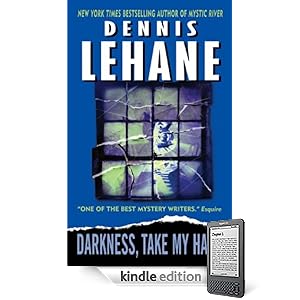
The third novel with Boston PIs Patrick Kenzie and Angie Gennaro, this one is sort of an updating of Chandler's The Big Sleep, with a dying billionaire kidnapping the two and then convincing them to search for his daughter, missing after a series of emotional wounds. Kenzie and Gennaro have not been working, after the events of the previous book, and take the job for a) greed (the money is good) b) Gennaro is convinced the man is grieving over his missing daughter, and wants to find out what happened to her before he dies of cancer and c) Kenzie's mentor Jay Becker is also missing, after being on the case first.
The trail, which involves a "grief" counseling center associated with what appears to be a cult, quickly leads the pair to Florida. They quickly find out the case is more complicated, and there are car chases and gun battles before the scene switches back to Boston, and they find out that once again, there's evil in the world. Lehane really runs his two PIs through emotional wringers in his books, and the violence level is high in each one. The saving grace remains the bond between Kenzi and Gennaro, friends since youth, who are slowly discovering what they truly mean to each other.

